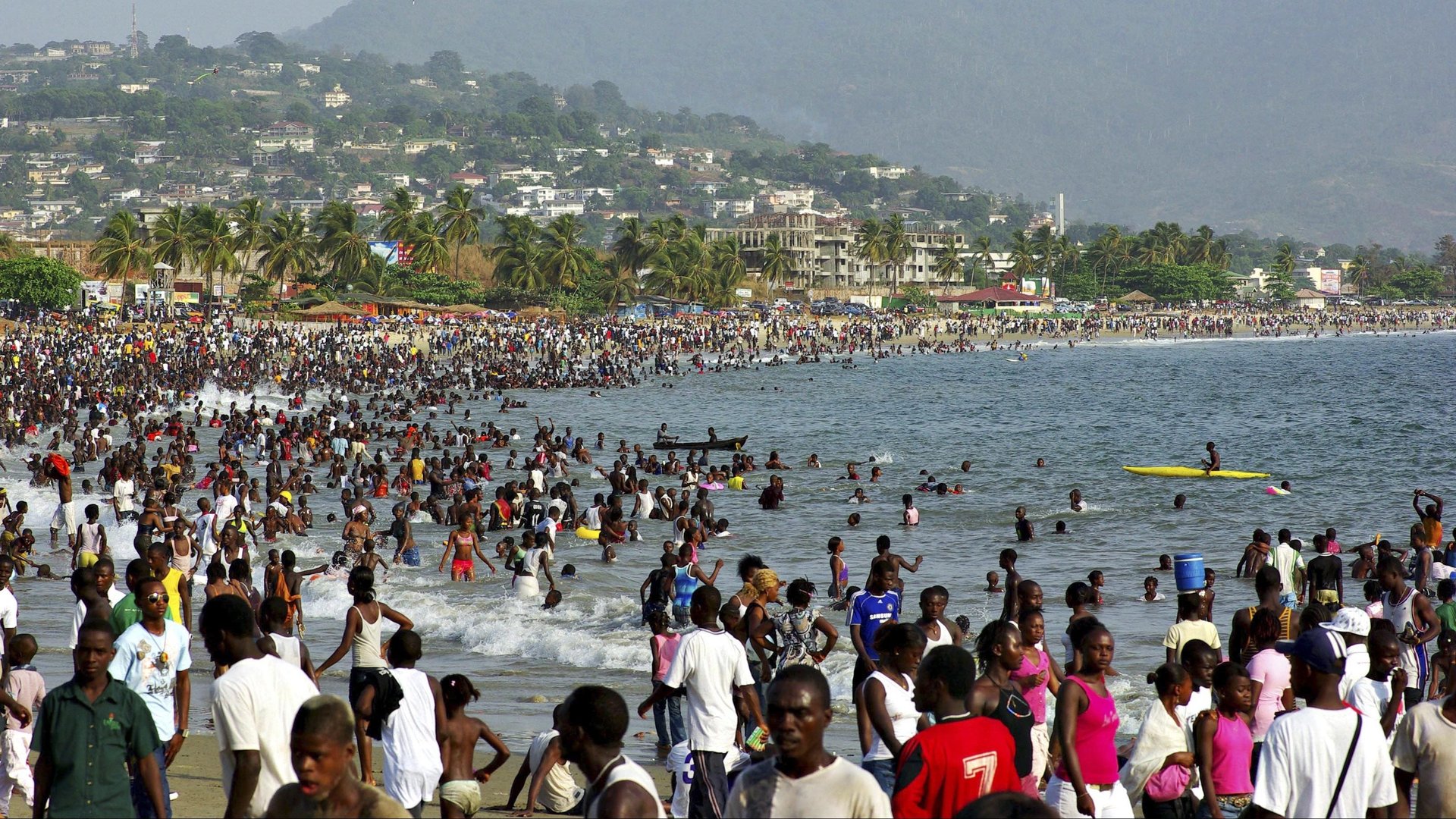Africa’s first “chief heat officer” says Freetown could be a data-driven climate model
The standard chorus in climate change clarion calls is that the world needs to limit earth’s warming below 1.5° Celsius. But one of the ways to get people to care about this big, if abstract goal is to focus attention on relatable climate-related hazards, like extreme heat.


The standard chorus in climate change clarion calls is that the world needs to limit earth’s warming below 1.5° Celsius. But one of the ways to get people to care about this big, if abstract goal is to focus attention on relatable climate-related hazards, like extreme heat.
In the US, heat waves, which occur as a series of unusually hot days, have become more frequent since the 1960s – from two per year that decade to six per year in the 2010s, killing hundreds of American farm workers and leading to serious injury for tens of thousands.
The number of people who got exposed to heat waves between 2000 and 2016 increased by 125 million, the World Health Organisation (WHO) said. 70,000 people died from heat waves in Europe in 2003, the year the world woke up to a long ignored threat.
And in sub-Saharan Africa?
There is hardly any data and researchers believe estimates are understated, frustrating hopes for meaningful public policy. But at least one African city is taking steps to fix the anomaly: last month, Yvonne Aki-Sawyerr, mayor of Freetown in Sierra Leone, appointed a chief heat officer for the city, the first such role in Africa.
What does a chief heat officer do?
In announcing Eugenia Kargbo, a 34 year-old former banker and mother of two, as Freetown’s chief heat officer, Aki-Sawyerr said one of the role’s key responsibilities is data collection. “Tracking extreme heat is an inroad to getting people more aware of climate change,” the mayor tells Quartz.
Kargbo has worked with the mayor before on urban planning and sanitation. In her new role, she will work with a team based in Freetown’s city council, and coordinate with agencies and councilors in charge of legislating and executing the city’s environmental goals. Aki-Sawyerr says that appointing a chief heat officer, whose tenure is one year, isn’t a gimmick but integral for transforming how her city works in the future.
Freetown isn’t doing this entirely on its own though.
Kargbo became the third chief heat officer in the world, following the creation of similar offices in Athens, Greece, and Miami Dade county in Florida in the US. In both cities, the official is a woman as well. The effort to create these roles in as many cities is supported by the Atlantic Council’s Adrienne Arsht-Rockefeller Foundation Resilience Center.
Kathy Baughman McLeod, director of the center, says the mission is to “have someone who wakes up everyday thinking about how to protect livelihoods from extreme heat, and coordinate across government entities with disparate focal points, to command resources for interventions that will reduce the impact of extreme heat, create awareness and early warning systems.” The center is a medium for the cities to exchange knowledge, while providing technical assistance to each official.
One city already wants to emulate Freetown
Kargbo wants to set a standard since “several cities in Africa share the same experience with Freetown.”
As the World Meteorological Organisation says, extreme weather events in Africa have deepened food insecurity, displacement, and similar problems. In a continent that relies heavily on agriculture, extreme heat limits productivity in rural areas, accelerating urban migration and overwhelming weak infrastructure in cities (like Lagos, Nigeria.) New slums spring up and expose residents to more climate hazards. Freetown, a city of about 1 million people has 72 slum communities, and 59% of Sierra Leone’s urban population lives in slums.
One year will likely be too short for Kargbo to cause revolutionary change. The programs she looks forward to—driving the city’s ongoing tree planting project to hit 1 million trees, encouraging recycling, creating waste collection jobs—are hardly seismic in the context of this month’s COP26 deliberations.
But laying the ground for a heat wave database would be noteworthy, and Kargbo is kind of having an effect already. At her unveiling, Tom Adams, the mayor of Monrovia, Liberia’s capital, was present and indicated interest in getting a chief heat officer for his city too. Perhaps the mayor of Kigali or governor of Lagos would become intrigued at some point too.
Sign up to the Quartz Africa Weekly Brief here for news and analysis on African business, tech, and innovation in your inbox.